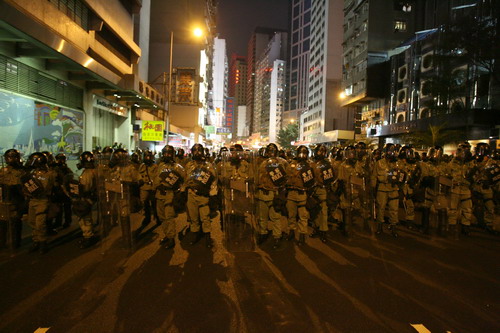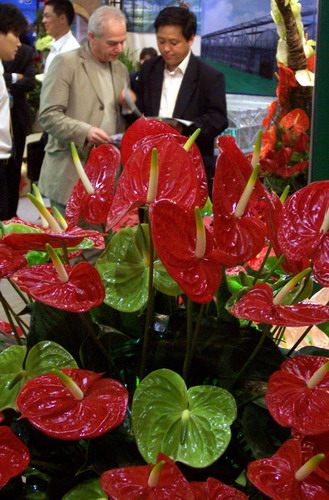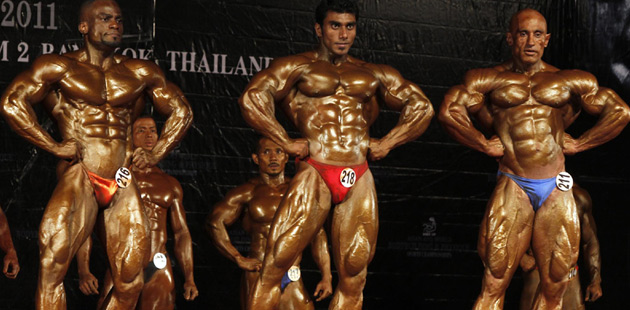WTO talks at the crossroads
Updated: 2011-10-12 10:31
By Ding Qingfen (China Daily)
|
|||||||||||
|
Police face anti-World Trade Organization protestors during a meeting in 2005. The standoff heralded a gloomy outlook for negotiators hoping to conclude the Doha Round of talks by the end of this year as scheduled. [Photo/ Bloomberg News] |
The Doha round seems unlikely to reach a resolution anytime soon, reports Ding Qingfen in Beijing.
The Director-General of the World Trade Organization (WTO) Pascal Lamy is on record as saying that 2011 was the "window of opportunity" for the Doha round of global trade talks, but now that window seems to be closing without any concrete results.
Irrespective of what Lamy expected when he made his remarks, almost everyone else involved seems convinced that there is little hope of the talks being wrapped up anytime soon.
At the Davos Forum, held in Switzerland in January, two dozen trade ministers were in high spirits and pledged to finalize the Doha trade deal this year, through a series of concessions and trade-offs in response to calls from Lamy.
However, while the developed regions and nations, which play a significant role in driving the talks, are fully occupied with their own economic woes, the Doha round, aimed at improving the prospects for developing nations, has been left out in the cold.
US President Barack Obama is busily involved in reviving domestic economy - which is expected to experience a double-dip recession - and fighting to prevent his poll numbers from sliding further. Meanwhile, European leaders are struggling to resolve a eurozone sovereign-debt crisis that started in Greece and now threatens to engulf Spain and Italy.
"It's sort of a hope to bring an end to the talks, but the real facts show there is no possibility of making it happen this year, for political reasons," said Shen Juere, a former vice-minister of commerce, at the China and WTO forum in mid-September.
"The success of the Doha talks depends greatly on political willingness, especially that of the developed nations. Given that many nations are facing the challenge of economic recession and the US is fully engaged in preparing for the upcoming presidential elections, they are unlikely to expend greater efforts on Doha," he explained.
Liu Guangxi, an economist and senior official of the State Administration of Foreign Exchange, agreed.
"We would probably consider resuming the talks after the presidential elections in the US. But it can neither be 2011, nor 2012, therefore 2013 might be the earliest opportunity," Liu, who is a WTO expert, said.
"However, I cannot agree that the Doha round will die. It's still on," he said.
The Doha round - also known as the Doha Development Agenda - was launched in late 2001, with the objective of opening up the world market and helping poorer countries to benefit from global trade.
However, the talks have been continuously suspended for the past 10 years because the major players, including the US, the European Union (EU), India, Brazil and China, have been unable to reach agreement on a set of rules for the agricultural sector, industrial goods and services.
"There is now a recognition that the 2011 window of opportunity to conclude the round is closed, that there will be no conclusion to the Doha round in 2011," according to Rob Davies, the South African trade minister.
Who's to blame?
Officials and experts at home and abroad have been pointing the finger at the US for postponing the talks.
The president of the World Bank Group, Robert Zoellick, has openly criticized the Obama administration for failing to provide leadership in the Doha round and for adopting a defensive stance that has helped to stall the discussions.
"If (US) negotiators wait for the US Congress to tell them it's OK to close a deal, they'll wait for a long time," said Zoellick, a US trade representative under former President George W. Bush.
"Congress thinks that the executive branch (the current Obama administration) is supposed to carry that load."
On Sept 23, India's Commerce Secretary Rahul Khullar said that Doha is "stuck". "One thing is clear: It will not be possible to conclude the Doha round by the end of 2011. It is also crystal clear that it will not be possible to strike a trade deal during 2012, because one country will be going through a very long, drawn-out election at that time," said Khullar, referring to the US presidential election in 2012.
|
Dealers discuss trading in horticultural products at a fair in Shanghai. China has promised no subsidies for agricultural exports in its effort to push forward the Doha round of talks. [Photo/China Daily] |
Related Stories
US move to challenge China at WTO is illogic 2011-09-22 11:11
China to push forward Doha talks 2011-09-08 17:07
Doha mandate key to solution 2011-05-09 13:47
China calls for 2011 end to Doha talks 2010-12-09 09:12
- WTO talks at the crossroads
- China buys Japan debt as crises in West grow
- Currency act shortsighted
- Bailout of Wenzhou private firms starts
- Farm produce prices slightly up last week
- Energy links with Russia strengthened
- Nike to invest in China 'very aggressively'
- Tired of long wait for license? Try renting one















